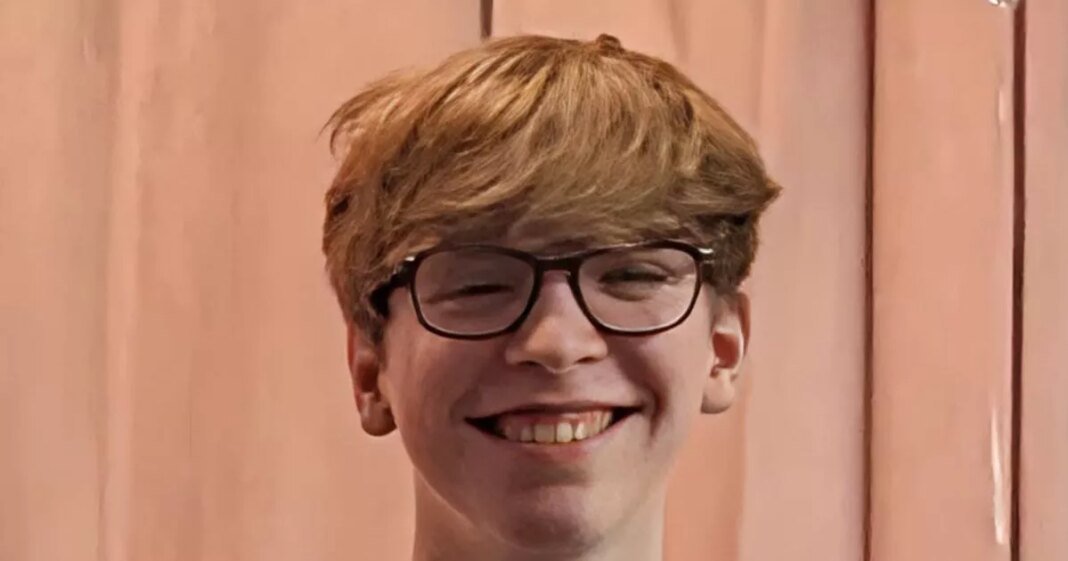Boy, 17, found dead of sepsis in bed after 111 handler failed to refer mum’s call
An NHS 111 call handler failed to refer the tragic case of a 17-year-old boy with sepsis to a medically trained clinician because she thought she could handle it, an inquest has heard.
Cyrus Perry’s mum Hayley called the service after the teenager fell ill at his home in Sturminster Marshall, Dorset. She reported her son as having six different symptoms to health advisor Sue Darnell and told her he had recently had surgery.
Both of these things meant the call could have been referred straight to a clinician as a “complex call” but Ms Darnell decided to continue the triage herself. The NHS computer system’s algorithms led Ms Darnell to tell Mrs Perry to take her son to A&E within an hour.
Mrs Perry said that because of his condition, she was physically unable to move him and so Ms Darnell said she would have a clinician call her back. The inquest heard the call back should have been made within 20 minutes – instead it was eight hours later. In that time Cyrus died in his bed of sepsis and group A strep.
In a statement, Mrs Perry recalled the harrowing moment she went into her son’s bedroom while on the phone to the clinician to find him dead. Ms Darnell told the inquest there were no clinicians available to immediately transfer the call to and she was confident putting it in the priority clinical queue would get Cyrus the quickest response.
She had worked as a 111 health advisor since 2017 and said her performance had never been questioned before. Ms Darnell said: “Yes it should have made it a complex case but because I was able to speak to Cyrus I was able to perform the triage. I felt I was doing the right care for him at the time. Once I put it in the queue I was under the impression it would be an urgent call back.”
Asked why she did not carry out a “clinical hunt” to check if a clinician was available immediately, she said: “On previous calls I knew I wasn’t able to get hold of anyone. I didn’t want to slow the care down for Cyrus. I felt that was the right thing at the time. We have clinicians who monitor the queue and call back priority patients. I was confident in the outcome of it going into the queue. A&E within the hour is a high outcome so it’s dealt with very quickly.”
The hearing heard all advisors are audited monthly on their calls and each one must achieve 86 per cent to be “compliant”, but the call with the Perry family was rated at just 59 per cent. The auditor found Ms Darnell had not noted all symptoms and had missed opportunities to seek clinical advice at the start and end of the call.
But if no one was available it would still have been sent to the clinical queue, with the same outcome. The court has not heard yet what caused such a delay but Christopher Bowden, from Dorset Healthcare, said on the night the most urgent patients who should have had a call back within 20 minutes, waited an average of three hours and six minutes.
Those on a lower priority two-hour call back list waited an average of two hours and 25 minutes. The jury inquest also heard a health advisor does not have the authority to send an ambulance if it is not recommended in the system’s outcome.
Cyrus’ mum has told the inquest her son’s death was preventable and she felt ‘let down’ by the system. He died sometime between 3am and 6.30am on June 8, 2023. Mrs Perry said: “I have concerns about NHS 111, I feel the death was preventable. I feel let down by NHS 111, I clearly informed them Cyrus was too unwell to get to hospital. This will haunt me for the rest of my life, I put my faith and trust in the system.”
The hearing heard he had long-term health conditions – lupus, autism and arthritis – and had an operation to fit a grommet and remove his adenoids in April 2023. He had been “more consistently ill” from May 29 onwards when the family got home from a holiday at Butlins Minehead. By June 7 his health had gone further down hill. The jury inquest in Bournemouth continues.
Get email updates with the day’s biggest stories

